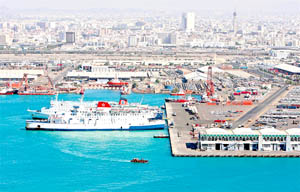Jeddah, Jun 23: Saudi authorities have foiled an attempt to smuggle 526 kg of cocaine into the Kingdom through the Jeddah Islamic Port. The cocaine consignment came from a South American country, said Maj. Gen. Mansour Al-Turki, spokesman of the Interior Ministry.
He said the police had taken necessary measures to foil the attempt to bring a huge amount of high-quality cocaine into the Kingdom following a tipoff. The smugglers were trying to smuggle the drug by hiding it in containers of commercial goods,” the spokesman said.
Saudi drug enforcement agencies set up a team to analyze the information and investigate its veracity. “Security agencies were then able to identify the shipment and the means of transport used for smuggling the drug into the Kingdom,” Al-Turki said.
The police found that the cocaine was hidden in a container of photocopier refills. The drug bust took place on June 7 where the police seized 526.34 kg of pure cocaine.
“The incident shows the international dimension of drug smuggling targeting the Kingdom,” he said. “We have contacted security agencies in the Latin American country to identify the criminals behind the crime,” the spokesman said.
Maj. Gen. Al-Turki said Saudi drug enforcement agencies would continue their efforts to prevent attempts to smuggle narcotics into the Kingdom.
According to a report published in April, Saudi police arrested six people and seized illegal drugs worth SR1 billion that were being smuggled into the country from neighboring Bahrain.





Comments
Add new comment